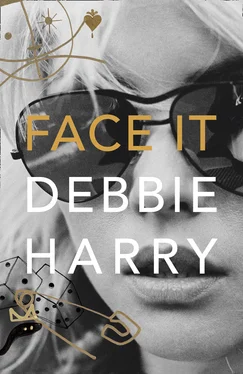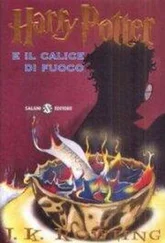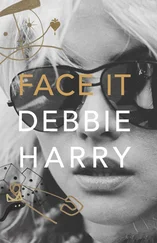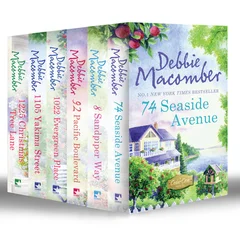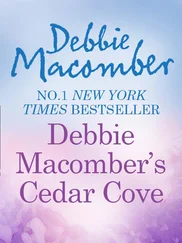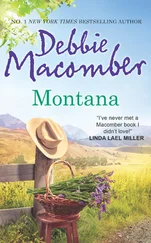My mother used to make fun of artists. She would put on a WASP-y accent, make one wrist go limp, and exclaim, “Oh, you are such an artiste .” That made me even more nervous and annoyed, and there’s nothing worse than an angry and pissed-off teenager. Now, my life was not awful; it was blessed. My parents heaped so much love on me. But I felt like I had a split personality with half of the split missing, submerged, unexpressed, unreachable, and hidden.
I didn’t make trouble at high school and my grades, although not straight A’s, were good. I actually liked the classes where we were given literature to read, and I got good at geometry, because it was like figuring out a puzzle. One of the first things I noticed about high school was how much more grown-up the girls were, particularly their clothes. I immediately became extremely conscious of my clothes, which were either too dull, too constricting, or both. My mother dressed me like a little preppy girl, clean-cut American, with clunky shoes. What I wanted to wear was tight black pants and a big loose shirt or a back-to-front sweater, like the beatniks, or something tough looking and ballsy. Or at least something jazzier, with bright colors or a fringe. But when my mom took me shopping she would go straight for a white blouse with a round collar and a navy-blue skirt. Basically, when it came to clothing choices, my mother and I were always poles apart.
As I got older, life looked up. I started making my own clothes. I would fool with things, some of them hand-me-downs, tearing the sleeves off of one piece and sewing them onto another. I remember showing this one concoction to perhaps my first friend, Melanie, who remarked, “It looks like a dead dog.” I have no idea where that dead dog went.
But for the longest time, I held on to one of those dresses I inherited from my mother’s friends’ daughters. I see it clearly now: this pink cotton summer dress with its full skirt and its great movement. Later, my father would take me to Tudor Square, one of his clients in the garment industry. And I remember getting a couple of brightly colored, really cool tweedy plaid outfits that I kept for a long time.
By the time I was fourteen, I was dyeing my hair. I wanted to be platinum blond. On our old black-and-white television and at the theater where they screened Technicolor movies, there was something about platinum hair that was so luminescent and exciting. In my time, Marilyn Monroe was the biggest platinum blonde on the silver screen. She was so charismatic and the aura she cast was enormous. I identified with her strongly in ways I couldn’t easily articulate. As I grew up, the more I stood out physically in my family, the more I was drawn to people that I felt I related to in some significant way. With Marilyn, I sensed a vulnerability and a particular kind of femaleness that I felt we shared. Marilyn struck me as someone who needed so much love. That was long before I discovered that Marilyn had been a foster child.
My mother colored her hair, so there was always peroxide in the bathroom. On my first attempt I didn’t get the mix right, so I ended up bright orange. I must have had at least a dozen different colors after that. I was also experimenting with makeup. I went through a beauty mark phase; I’d show up at school, my face looking like one of those connect-the-dots puzzles. My skills improved, but I still enjoyed experimenting.
At fourteen I was a majorette. I’d dress up in the tasseled boots, the tall hat, and the skirt that didn’t cover much at all, and I would march and twirl a baton. I was better at marching than baton twirling. I would always drop the baton, which meant I had to bend and pick it up, and which obviously added something extra to the performance.
I also joined a sorority, because that was what you were supposed to do, and it was the cool thing to do. These high school sororities and fraternities were curious groups—a sociologist or anthropologist would have a field day with them, I am sure. Each group had a strong identity and each was very competitive. But there were plenty of pluses too. When you’re a high school girl looking for an identity, a sorority gives you somewhere to belong. The girls ranged in age from freshmen to seniors and all called each other sister, so there was a lot of affection and camaraderie. The younger ones just needed to survive being pushed around on initiation night by their “sisters.”
Later on I quit. I don’t remember exactly how it went down, but I had some friends that they didn’t think were appropriate. I was offended by their telling me who I could and couldn’t have as friends and I left.
Though I wasn’t a troublemaker, I sometimes got detention—not for anything really bad, just cutting school. I’d go to Stewart’s Drive-In for a root beer and never come back. The worst thing about detention was having to sit there and write one stupid sentence over and over, thousands of times. I noticed that this one girl, K, would initial every page at the top with “JMJ.” When I asked why she did that, a little surprised at my ignorance, she let me know in no uncertain terms that the letters stood for “Jesus, Mary, and Joseph.”
K had been kicked out of Catholic school. So sitting next to her was the best thing about detention. She was a big, tough, gum-chewing Irish girl with sandy red hair and pimply teenage skin. She was always in detention for fighting. She had been labeled the town pump, the blow job queen, whether she deserved it or not. In small towns like ours, you could end up being caught forever in cruel traps. Small towns’ stigmata. However, K and I became friends. I was always interested in anyone who was so out front like that. I was fascinated by their danger. I wanted to be dangerous too but still wanted to protect myself. So I wasn’t dangerous—yet.
There was another friend whose mother was a nurse. One day she said she was going to Florida for a vacation. I said, “Gee, you’re so lucky!” I was dying to get out of this town and the idea of going to Florida for a vacation was very exotic—especially since I was born in Florida and had never been there since. But she actually went to Puerto Rico for an abortion. When she came back I looked at her and said, “My God, you don’t have a tan.” She just glared at me. I didn’t know that she had gotten knocked up. No one said anything.
I had a lot of boyfriends, usually one at a time, because that was the way it was done in this kind of small, uptight little town where reputations were made and lost in seconds. I would see one boy for a month or two and then I would see someone else. I really loved sex. I think I might have been oversexed, but I didn’t have a problem with that; I felt it was totally natural. But in my town in those days, sexual energy was very repressed, or at least clandestine. The expectation for a girl was that you would date, get engaged, remain a virgin, marry, and have children. The idea of being tied to that kind of traditional suburban life terrified me.
Some nights I would get a ride with a girlfriend and we would go to Totowa borough next to Paterson where my grandparents lived. Totowa had a notorious reputation back then and its main street was sometimes referred to as “Cunt Mile.” It was the thoroughfare where a lot of kids hung out. All the girls would walk around looking as hot and trashy as possible and the guys cruised the street looking at the girls. I would find a guy I liked and make out with him. They had great dances up there too. The town I came from was all white kids, but at these dances there was a really integrated crowd. And the music was just great because they played a lot of hot black music and everyone danced their ass off. I loved dancing. Still do.
For a while now, I had taken to going to New York; the bus fare was less than a dollar then. My favorite place to wander was Greenwich Village. I’d get in around ten in the morning, when all the bohemians and beatniks were still sleeping and everything was closed. I would just walk around, not looking for anything in particular, looking for everything really, and ingesting and digesting it all. Art, music, theater, poetry, and the sense that everything was up for grabs, you just had to see what fit. I was desperate to live in New York and be an artist. I could not wait for high school to end.
Читать дальше
